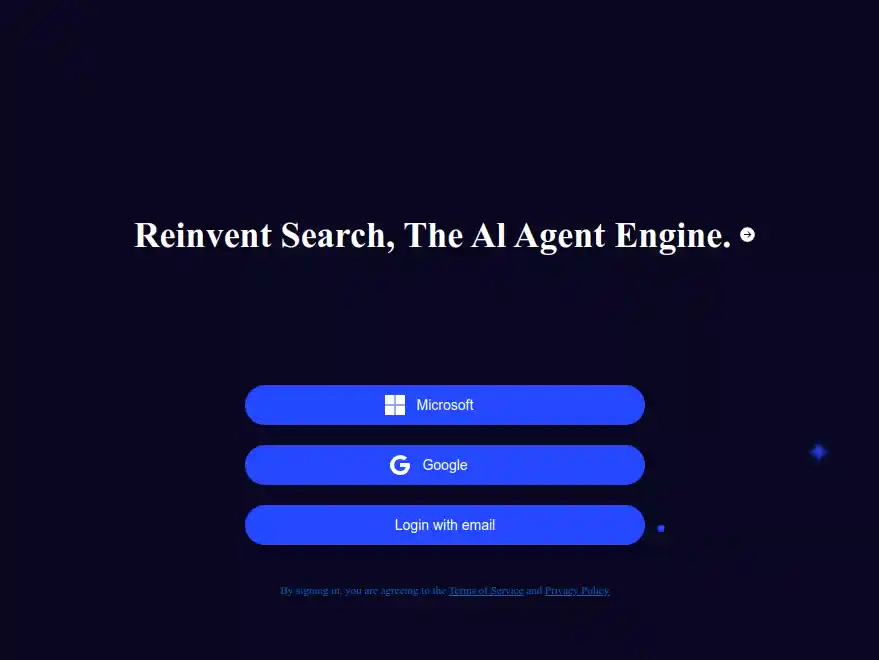Table of Contents
In the rapidly evolving world of search engines, a new player has emerged that aims to outshine its predecessors. Genspark, an innovative AI-powered search engine, is the latest attempt to revolutionize how we search for information online. This article explores Genspark’s unique approach, the technology behind it, and its potential to disrupt the market.
The Emergence of Genspark: A New AI-Powered Search Engine
Genspark vs. Perplexity: A New Challenger in the AI Search Arena
In the competitive landscape of AI-powered search engines, It is positioned as a strong contender against established platforms like Perplexity. While Perplexity has made its mark, It promises a more refined and user-friendly search experience. Its creators believe that it can address the shortcomings of previous AI search attempts and deliver superior results.
The Promise of Genspark’s Generative AI
At the core of Its appeal is its use of generative AI to create custom summaries, known as Sparkpages, in response to user queries. For example, a search for “What’s the best baby formula for newborns?” will generate a Spark page that consolidates information from various sources into a single, cohesive overview. This functionality is similar to features offered by Arc Search and Google’s AI Overviews but aims to provide higher-quality and more relevant results.

How It Works: The Technology Behind the Innovation
The Unique Approach of Spark Pages
It stands out with its Sparkpages, which are detailed summaries created by synthesizing content from across the web. Each Spark page provides a comprehensive overview of the search topic, enriched with authoritative data and additional resources. For instance, travel-related searches yield Sparkpages with organized information, videos, and interactive features, offering a more engaging user experience.
Specialized AI Models for Enhanced Accuracy
Eric Jing, co-founder of Genspark, emphasizes the use of multiple specialized AI models to handle different types of queries. This approach allows Genspark to deliver more precise and contextually relevant results. The platform combines in-house models with third-party models from OpenAI and Anthropic, categorizing and organizing search results effectively.
Real-Time Summaries and In-Depth Sparkpages
Each Genspark search result begins with a basic AI-generated summary at the top of the page, followed by a link to a detailed Spark page. These summaries offer quick insights, while the Spark pages provide deeper, structured information. For product searches, Sparkpages include pros-and-cons lists, aggregated reviews, and social media comments, giving users a well-rounded perspective.
The Benefits and Challenges of Genspark’s Approach
Advantages Over Competitors
It offers several advantages over its competitors:
- Contextual Summaries: Unlike traditional search engines, It provides contextually relevant summaries that help users find information quickly and efficiently.
- User-Friendly Interface: Sparkpages are designed to be intuitive and engaging, making it easier for users to navigate and understand complex topics.
- Enhanced Data Quality: Genspark prioritizes high-authority and popular web pages, reducing the likelihood of encountering unreliable or misleading information.
Addressing Ethical and Accuracy Concerns
Despite its innovations, Genspark faces challenges in ensuring the accuracy and ethical handling of its content. While it avoids egregious errors like those seen in Google’s AI Overviews or Arc Search, It must address potential issues with controversial or inappropriate search results. Ensuring data quality and respecting intellectual property are critical areas that It is actively working to improve.

The Market Impact and Future Prospects of Genspark
Potential Market Disruption
It has the potential to disrupt the traditional search engine market by offering a more intuitive and enriched search experience. Its generative AI approach sets it apart from competitors, appealing to users who seek quick, reliable, and visually engaging search results. The platform’s ability to synthesize information into comprehensive summaries could shift user expectations and influence the development of future search technologies.
Challenges in Gaining Traction
However, Its journey is not without obstacles. It must navigate technical, legal, and ethical hurdles while scaling its operations. The platform’s small team, currently based in Singapore and the Bay Area, faces intense competition from well-funded rivals and established search giants like Google. Developing a sustainable business model and addressing content licensing are crucial steps for Its long-term success.
Securing Funding and Future Development
Its promising start includes a significant seed round of $60 million, led by Lanchi Ventures, valuing the company at $260 million post-money. Investors are optimistic about Its approach and the technical expertise of its founders, Eric Jing and Kay Zhu, both of whom have extensive experience in AI and search technologies.
Genspark’s Potential to Redefine AI-Powered Search
It represents a bold step forward in the realm of AI-powered search engines. By leveraging generative AI to create Sparkpages, It aims to offer a more efficient and user-centric search experience. While it faces challenges in market adoption and content accuracy, its innovative approach positions it as a potential game-changer in the search engine landscape.
As Genspark continues to develop, it will need to address the complexities of scaling its technology, refining its content-handling processes, and establishing a viable business model. If successful, It could redefine how we interact with search engines, making information retrieval faster, more reliable, and more intuitive for users worldwide.





